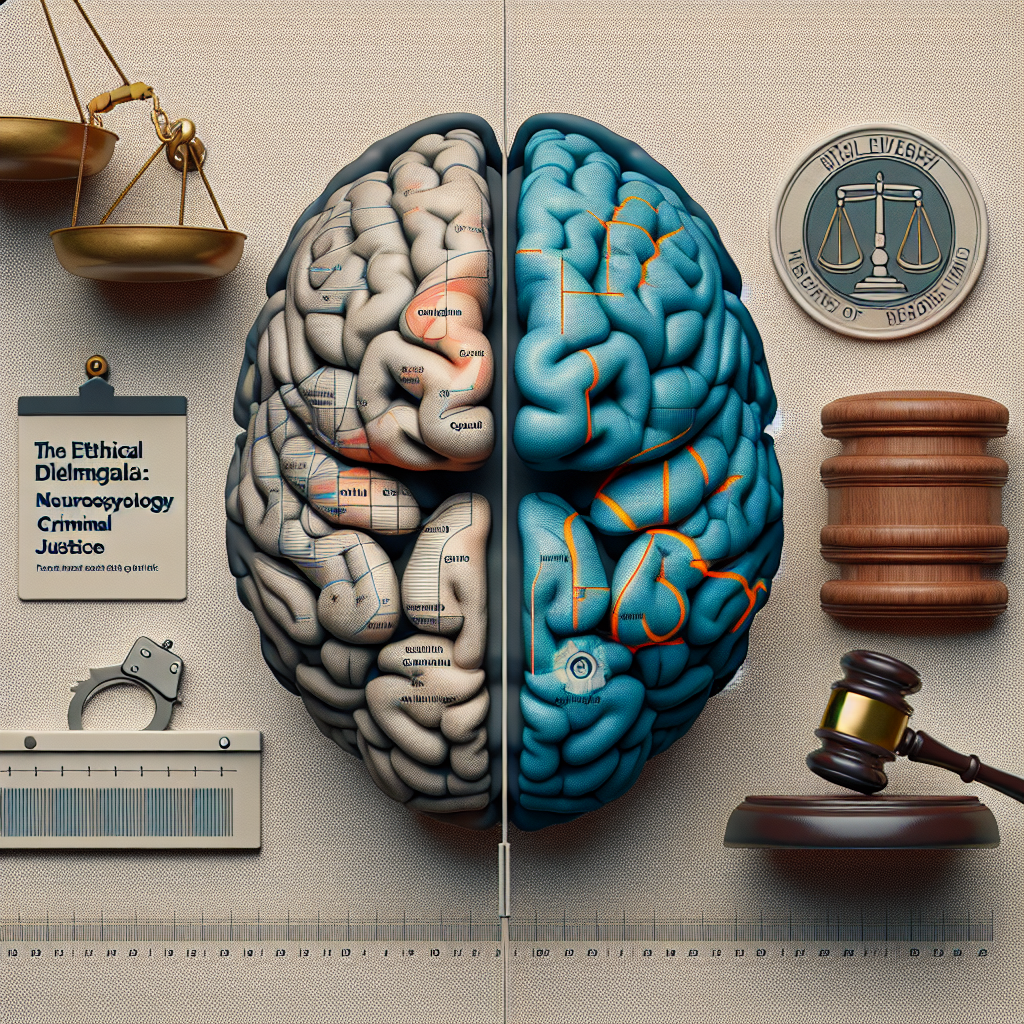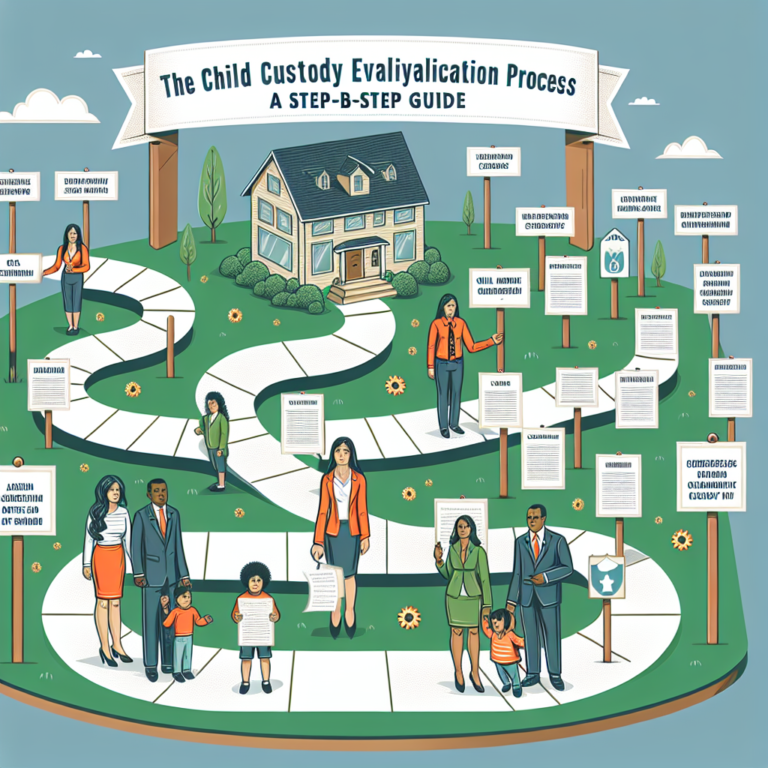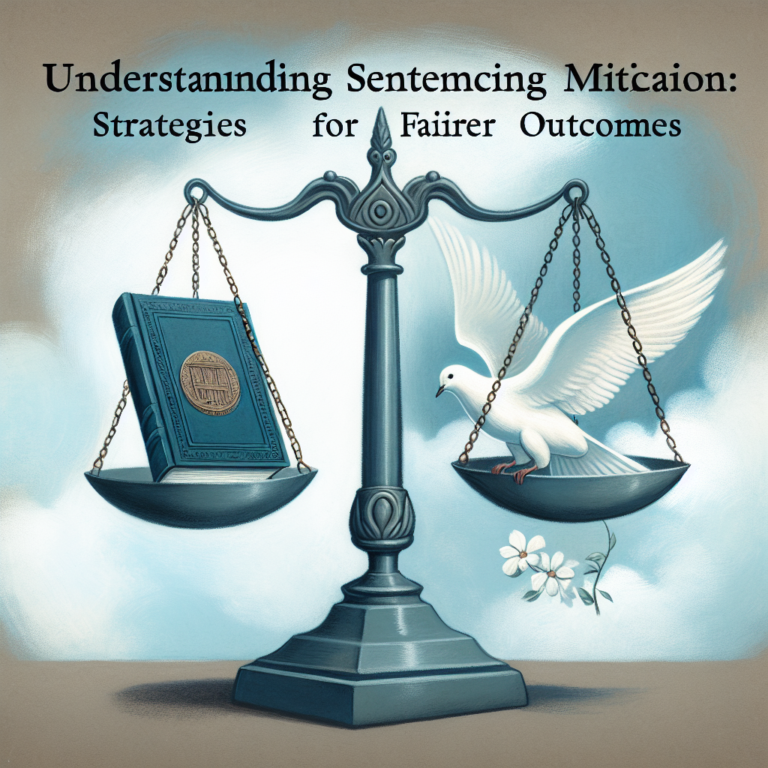
Introduction
In the often complex intersection of psychology and law, the focus has never been sharper. From criminal profiling to the evaluation of mental competency, neuropsychology provides crucial insights that can significantly influence criminal justice outcomes. Yet, this discipline comes with a set of ethical dilemmas that spark intense debates among professionals, lawyers, and society. The ethical dilemma: neuropsychology in the context of criminal justice is not just an academic discussion; it impacts real lives and the very fabric of justice in our communities. In this article, we will explore the challenges and implications of applying neuropsychological insights in the courtroom, shedding light on case studies, ethical considerations, and the path forward.
The Intersection of Neuropsychology and Criminal Justice
To grasp the ethical dilemma at play, it’s essential to understand the foundational principles of both fields. Neuropsychology examines how brain function and structure relate to behavior, cognition, and emotions. In the criminal justice system, these insights can be pivotal in determining culpability, competency, and, at times, the sentencing of offenders.
The Role of Neuropsychological Assessments
Understanding Competency to Stand Trial
One of the most significant applications of neuropsychology in criminal justice is assessing an individual’s competency to stand trial. Courtrooms often rely on expert evaluations to determine whether a defendant understands the charges against them and can aid in their defense.
Case Study: The Case of John Hinckley Jr.
In the 1981 attempted assassination of President Ronald Reagan, Hinckley underwent extensive psychological evaluation. His defense claimed he was not guilty by reason of insanity, hinging on neuropsychological assessments that revealed severe mental illness. While manic episodes and psychotic symptoms were documented, this case illuminates the ethical conflict: should one’s mental state exonerate them from responsibility for heinous acts?
| Case Study Components | Details |
|---|---|
| Defendant | John Hinckley Jr. |
| Charge | Attempted murder |
| Defense | Not guilty by reason of insanity |
| Outcome | Found not guilty; implications for public safety and mental health awareness |
Risk Assessment in Sentencing
Neuropsychological evaluations can also play a role in sentencing decisions, dealing with questions of recidivism and rehabilitation potential. The ethical dilemma here arises from whether to prioritize public safety over empathetic understanding of a defendant’s mental health background.
The Challenge of Predicting Recidivism
Risk assessment tools often incorporate neuropsychological factors, raising concerns about accuracy and ethicality. If a test predicts high risk based on brain function, does that mean the individual deserves a harsher sentence, even if they have the potential for rehabilitation?
Case Study: The Case of Darius Smith
Smith was sentenced to 20 years after a neuropsychological risk assessment indicated a high likelihood of reoffending due to impulsivity rooted in a brain injury he suffered years prior. Critics argue that his history warranted a more rehabilitative approach rather than punitive.
| Case Study Components | Details |
|---|---|
| Defendant | Darius Smith |
| Charge | Armed robbery |
| Risk Assessment Outcome | High risk of reoffending |
| Sentencing Consideration | Did not account for potential rehabilitation |
Ethical Concerns in Neuropsychological Practices
The ethical dilemmas surrounding neuropsychology in the context of criminal justice suggest a delicate balancing act between various interests. Below, we delve into key ethical considerations.
The Concept of Free Will and Determinism
How much control does a person truly have over their actions when their behavior is influenced by brain function? The debate regarding free will and determinism presents significant ethical questions. If psychological conditions impair decision-making capacity, can individuals justifiably escape their actions’ consequences?
Informed Consent and Confidentiality
Neuropsychologists must navigate the challenging waters of informed consent and confidentiality, particularly when evaluations are court-ordered. Are defendants fully aware of the implications of these evaluations, or are they coerced into participating under the threat of legal consequences? This aspect requires rigorous ethical reflection.
The Stigmatization of Mental Health
Using neuropsychological data in the courtroom can inadvertently stigmatize individuals suffering from mental health conditions. If a defendant’s mental impairments are showcased as grounds for their criminal behavior, does it risk perpetuating stereotypes and discrimination against those with similar conditions who do not commit crimes?
Real-World Applications and Testing Efficacy
The ethical dilemma: neuropsychology in the context of criminal justice isn’t merely theoretical; several real-world applications highlight its complexities.
Diversion Programs and Mental Health Courts
Mental health courts aim to divert individuals with mental health disorders into treatment rather than traditional incarceration. Neuropsychological assessments help identify candidates, thus bridging the gap between understanding illness and delivering justice.
Case Study: Miami-Dade Mental Health Diversion Program
In Miami, a pioneering approach employs neuropsychological evaluation to identify individuals with untreated mental health conditions, diverting them from the prison system. Early findings indicate reductions in recidivism and improved mental health outcomes.
| Program Components | Details |
|---|---|
| Location | Miami-Dade |
| Objective | Reduce imprisonment rates for mentally ill offenders |
| Outcomes | Lower recidivism rates and improved treatment adherence |
Navigating Policy and Legislative Frameworks
Addressing the ethical dilemmas associated with neuropsychology in criminal justice requires not just clinical insight but also robust policy change. The question is how do we implement ethical guidelines that protect individuals while ensuring justice is served?
Legislative Recommendations
Standardized Risk Assessment: Develop standardized tools for neuropsychological evaluations to ensure fairness and accuracy.
Mandatory Training for Jurists and Lawyers: Promote courses in neuropsychology among legal professionals to foster understanding of its implications.
- Stronger Safeguards in Mental Health Courts: Establish strict guidelines to ensure that accused individuals’ rights are protected throughout the evaluation process.
Ethical Review Boards
Implementing independent ethical review boards within the criminal justice system could offer insights into proposed neuropsychological practices, ensuring that ethical considerations remain paramount in evaluating offenders.
Conclusion
The ethical dilemma: neuropsychology in the context of criminal justice poses complex questions that require thoughtful consideration and action. As this field evolves, its integration into the legal framework demands rigorous ethical reflection. By prioritizing empathy, safety, and justice, we can navigate these dilemmas, fostering a system that upholds the dignity of all individuals while ensuring accountability.
In a world increasingly driven by scientific advancements, understanding these intersections will not only advance legal practices but also humanize the individuals behind the cases, leading us toward a more enlightened future.
FAQs
1. What is neuropsychology, and how does it relate to criminal justice?
Neuropsychology is the study of how brain function affects behavior and cognitive processes. In criminal justice, it aids in assessments of competency, insanity, and risk of recidivism.
2. What are common ethical concerns surrounding neuropsychological assessments in court?
Common concerns include issues of informed consent, the potential for stigmatization of mental health conditions, and the balance between public safety and empathy for those with brain impairments.
3. How can neuropsychological evaluations affect a trial’s outcome?
These evaluations can determine a defendant’s competency to stand trial, inform sentencing decisions, and influence insanity defenses, directly impacting outcomes.
4. What role do mental health courts play in addressing these ethical dilemmas?
Mental health courts aim to treat individuals with mental health issues rather than punish them, focusing on rehabilitation through informed neuropsychological evaluations.
5. Are there standardized risk assessment tools for neuropsychology in criminal justice?
While there are some standardized tools, the field is still evolving. Ongoing debates about their efficacy and ethics emphasize the need for robust, validated assessments to ensure justice.
By diving deep into the ethical dilemmas posed by neuropsychology within the criminal justice system, we can foster discussions and policies that push toward a more just and compassionate society.















